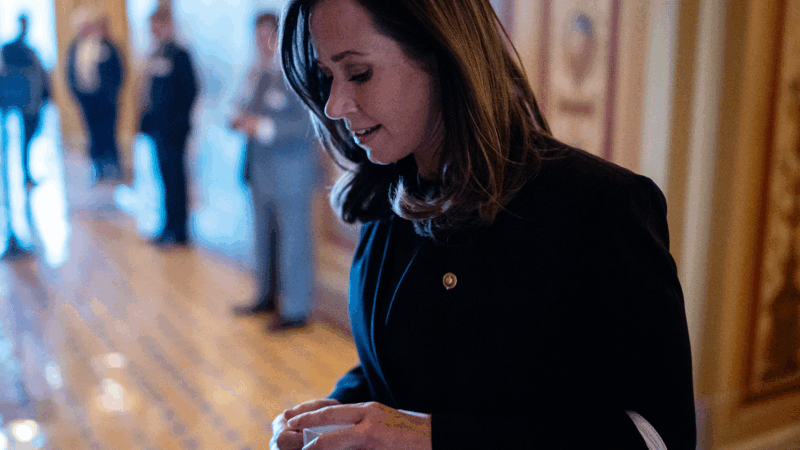Trump signs executive action to lower drug prices
President Trump signed an executive action Tuesday intended to lower prescription drug prices for Americans.
A White House official, speaking on condition of anonymity, told reporters ahead of the signing that the move would include “delivering lower prices to seniors” and improve the Medicare drug price negotiation program, which was created by the Inflation Reduction Act that passed in 2022.
“We are confident we will eclipse the savings the Biden administration achieved in the first year,” the official said.
Because the number of drugs subject to negotiation increases each year, greater savings over time were baked into the law. Medicare negotiated the prices of 10 drugs in 2024, and it will negotiate 15 more this year, including for Ozempic, the blockbuster diabetes medicine with a list price of around $1,000 a month.
Any price breaks would take time
But consumers will have to wait to see the results. The lower Medicare prices negotiated in the Biden administration won’t take effect until 2026. And prices from the new round of negotiations by the Trump administration won’t be available until 2027.
And if the administration applies tariffs to imported pharmaceuticals and ingredients used to make medicines domestically, consumers could pay more for many medications. A federal notice filed Monday said the Secretary of Commerce is investigating the national security effects of the importation of drugs and drug ingredients. The findings could be a precursor to tariffs.
The official said the administration would resurrect a program from Trump’s first term to give insulin to low-income individuals, including those without insurance. In some cases, the official said, patients would pay 3 cents a vial, plus a small administrative fee, for insulin; injectable epinephrine would cost $15 for auto-injector under the program, the official said.
“The president is leveraging current programs to deliver meaningful cost savings here,” the official said.
The action directs the Food and Drug Administration to facilitate approval of state importation programs and to streamline the approval for lower-cost generics and biosimilars. So far, only one state, Florida, received FDA approval to import lower cost drugs from another country like Canada. According to a news report from November, it had not yet begun doing so.
Pills vs. biologics
The official added that the action would seek to address Medicare’s drug price negotiation program as it applies to small molecule drugs – which comprise most prescription pills like statins and blood pressure treatments — versus more complex biologic drugs, like blockbuster rheumatoid arthritis and psoriasis drug Humira.
Under current law, small molecule drugs are eligible for Medicare negotiation seven years after FDA approval; for biologics, negotiations aren’t allowed until 11 years after approval.
This creates an “imbalance” that pushes companies to invest in biologics drugs, usually given by injection, over pills. Trump’s action instructs Health and Human Services Secretary Robert F. Kennedy Jr. to work with Congress to address this imbalance in a way that does not increase overall Medicare spending.
In addition, the executive action would take steps to align the price Medicare pays with the cost for hospitals to acquire drugs and begin the process to align payment across care settings, the same official said on background.
Forget the State of the Union. What’s the state of your quiz score?
What's the state of your union, quiz-wise? Find out!
SNL mocked her as a ‘scary mom.’ In the Senate, Katie Britt is an emerging dealmaker
Sen. Katie Britt, Republican of Alabama, is a budding bipartisan dealmaker. Her latest assignment: helping negotiate changes to immigration enforcement tactics.
Nancy Guthrie case: How do families of missing people cope with the uncertainty?
When a loved one goes missing, relatives can feel guilty simply for eating, says Charlie Shunick, whose sister was kidnapped. Shunick now helps others navigate a nightmare "nobody is prepared for."
A team of midlife cheerleaders in Ukraine refuses to let war defeat them
Ukrainian women in their 50s and 60s say they've embraced cheerleading as a way to cope with the extreme stress and anxiety of four years of Russia's full-scale invasion.
As the U.S. celebrates its 250th birthday, many Latinos question whether they belong
Many U.S.-born Latinos feel afraid and anxious amid the political rhetoric. Still, others wouldn't miss celebrating their country
This community festival embraces the joys of a frozen lake — while it still has one
As climate change accelerates, local experts say the date Wisconsin's Lake Mendota freezes over is getting later, making safe conditions for activities that rely on snow and ice harder to predict.






